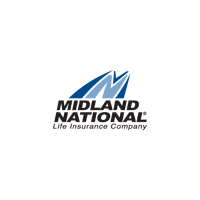Did you know that over 50% of America’s largest corporations leverage COLI policies as strategic financial tools? Beyond just protecting businesses against the loss of key employees, corporate-owned life insurance has evolved into a sophisticated vehicle for tax-advantaged growth, funding executive benefits, and managing long-term financial obligations. In today’s complex financial landscape, COLI represents a powerful but often misunderstood asset in the corporate toolkit.
Table of Contents
- What is Corporate-Owned Life Insurance (COLI)?
- How COLI Policies Are Structured
- How a COLI Program Works
- Tax Advantages of COLI
- Using COLI to Fund Non-Qualified Deferred Compensation
- Pros and Cons of Corporate-Owned Life Insurance
- New Developments in COLI (2024-2025)
- Ethical and Regulatory Considerations
What is Corporate-Owned Life Insurance (COLI)?
Corporate-owned life insurance is permanent life insurance purchased by a business to cover an employee, officer, partner, or other key person. The company pays the premiums, owns the policy, and is named as the beneficiary.
Traditionally, COLI was primarily intended to insure against the financial risk of losing a vital employee (“key person insurance“)—such as costs associated with hiring replacements or decreased revenue resulting from lost clients or diminished productivity.
More recently, because COLI policies accrue cash value and earn tax-advantaged growth, many companies have extended COLI programs to a greater number of employees and use COLI earnings to fund long-term obligations like employee benefits and deferred compensation packages.
COLI is also frequently used as a source of liquidity for contractual stock buy-backs or to fund a buyout pursuant to a buy/sell agreement.
Industry Adoption: COLI is particularly popular with large corporations and financial institutions. Over half of the largest American companies—and the vast majority of financial institutions—own life insurance policies covering their officers or key employees. With that said, any business with long-term employee obligations and sufficient cash to cover the premiums can potentially benefit from COLI.
How COLI Policies Are Structured
In most cases, COLI comes in the form of a whole life or universal life policy purchased by an employer to cover a newly hired or recently promoted high-ranking employee or officer. According to recent market trends, variable universal life (VUL) products are increasingly being adapted to meet evolving estate planning and tax-efficiency needs[1].
The insured employee must consent to the coverage at the time of issuance. Premium cost is almost always borne by the company, which is both policyholder and beneficiary under the COLI policy.
Premium payments are typically more front-loaded than with most consumer life insurance, though paying in too much too early can negatively affect the tax advantages.
Cash Value Growth
COLI cash surrender value builds with each premium payment and earns interest over time, and most COLI policies are structured to build value faster than ordinary consumer policies.
Growth rates are usually linked to the performance of the life insurance company’s investments or to market rates as a whole, depending on the specific policy and company.
COLI policies designed to fund deferred compensation often provide multiple investment options for the company (or sometimes covered employee) to select among.
Cash surrender value is treated as a company asset, and policy growth counts as company earnings, but with no corresponding current tax liability. When policy proceeds are received by the company as a death benefit, the funds including policy growth are tax-free.
COLI is generally considered an illiquid asset; however, policy value can be accessed at any time through a surrender, partial withdrawal, or contractual policy loan. To the extent policy growth is received via surrender or partial withdrawal (i.e., not as a death benefit), growth is taxable when received. Policies often impose surrender fees if cashed out within the first few years after issuance.
How a COLI Program Works
Typically, a business will hold COLI policies covering multiple high-ranking employees and officers within a pool or trust earmarked to finance long-term benefits and deferred compensation obligations.
If a policy is triggered by the death of a covered employee, the policy proceeds are paid to the company, and the funds are then available for long-term obligations.
If a covered employee leaves the organization, the company can keep the policy in place or cash out—either way, when received the proceeds are applied toward funding long-term obligations.
COLI growth offsets some or all of the overhead costs of administering compensation and benefits packages. Due to the tax advantages of COLI, returns often substantially outperform comparable low-risk investments a business might otherwise use to finance long-term obligations.
What are the Tax Advantages of COLI?
Growth earned on COLI cash value is either tax-deferred or tax-free, depending upon whether it is realized through a surrender or death-benefit payout. No current tax liability is incurred for cash-value growth unless actually withdrawn from the policy.
And, if growth is received as a death benefit upon the insured employee’s death, the entire amount is non-taxed.
As a result, policy earnings grow and compound for as long as COLI remains in place, with no income or capital gains tax liability if growth is paid out as part of a death benefit.
COLI is increasingly being used as an alternative to mutual funds due to its ability to accumulate tax-deferred cash values and provide tax-free death proceeds. This makes it a preferred tool for offsetting liabilities like deferred compensation programs[2].
In most cases, employees and their families don’t directly receive COLI proceeds. Instead, policy payouts, including long-term, tax-free growth, increase cash available to meet long-term obligations.
However, if a portion of COLI policy proceeds is paid to an insured employee’s surviving family members, the policyholder business can deduct some or all of the payout.
Using COLI to Fund Non-Qualified Deferred Compensation
A COLI program can provide a tax-advantaged, low-risk means of funding deferred compensation packages offered to attract high-value employees.
Technically, COLI policies are held as part of a business’s general assets, and proceeds are not formally restricted to funding deferred compensation.
Nevertheless, the long-term nature of COLI as a financial asset and its inherent tax and growth advantages make it a natural fit as a deferred-compensation funding source.
Example: COLI for Deferred Compensation
A company might implement a COLI program including universal life policies covering a dozen high-ranking officers eligible for deferred compensation.
- Premiums paid toward the policies build up cash value, which earns tax-free returns and counts as an asset on the company’s books.
- When a policy is triggered, the tax-free proceeds (including growth) are applied toward the funding pool for deferred compensation packages.
- If deferred compensation obligations are currently payable and death benefit proceeds have not yet sufficiently funded the pool, partial policy surrenders or policy loans can be used to cover the payments.
Pros and Cons of Corporate-Owned Life Insurance
One of the fundamental legal requirements for life insurance is that the policyholder have an “insurable interest” in the life of the would-be insured.
Because businesses rely on the hard work and know-how of their personnel—particularly those with particular experience or training—companies have an insurable interest in their officers and employees.
Benefits of COLI
- Provides financial protection against the loss of key employees
- Offers tax-deferred cash value growth
- Death benefits are received tax-free
- Efficient funding vehicle for executive benefits and deferred compensation
- Can be used to fund buy-sell agreements
- No mark-to-market accounting required
- Policy loans can provide liquidity without triggering tax events
Considerations and Challenges
- Requires careful IRS compliance to maintain tax benefits
- Subject to increasing ethical scrutiny and regulatory oversight
- Employee consent requirements must be strictly followed
- Potential for negative public perception (“dead peasant” policies)
- Significant upfront premium costs
- Surrender charges if liquidated early
- Requires long-term commitment for optimal benefits
New Developments in COLI (2024-2025)
The corporate-owned life insurance landscape continues to evolve with several notable trends emerging in 2024-2025:
1. Enhanced Use in Reinsurance Transactions
Companies like Somerset Re have integrated COLI into reinsurance deals, highlighting its role in managing liabilities and expanding financial strategies. This trend demonstrates how COLI has evolved beyond its traditional use as merely key person protection[3].
2. Market Trends and Product Innovations
Insurance providers are introducing new variable universal life (VUL) products specifically designed to optimize the benefits of COLI. These products offer enhanced flexibility in investment options and are better tailored to meet evolving estate planning and tax-efficiency needs in the corporate environment.
3. Digital Transformation Impact
The broader life insurance industry’s digital transformation is making COLI policies more efficient to manage. Advanced analytics and policy management platforms are allowing companies to better track performance, optimize premium payments, and more accurately project future benefits and obligations.
4. Alternative to Traditional Investments
With continued market volatility, COLI is increasingly viewed as an alternative to mutual funds and other traditional investments for funding long-term obligations. Its tax advantages and relative stability make it particularly attractive in uncertain economic conditions.
Ethical and Regulatory Considerations
Corporate-owned life insurance has faced increased scrutiny in recent years, with particular focus on ethical concerns and regulatory compliance:
Employee Consent and Notification
To maintain tax benefits, companies must follow strict notification and consent requirements when implementing COLI policies. The insured employee must be informed about the policy and provide written consent before coverage begins.
Regulatory Compliance
The IRS has established specific guidelines for COLI to qualify for favorable tax treatment. Companies must carefully structure their COLI programs to comply with these regulations or risk losing the tax advantages that make these policies attractive.
Ethical Considerations
There has been ethical debate surrounding so-called “dead peasant” or “janitor” insurance—policies taken out on rank-and-file employees without their knowledge. Modern regulations largely prevent this practice, but companies should be mindful of public perception and ensure their COLI program focuses on key personnel and is implemented transparently.
Discover if Corporate-Owned Life Insurance is Right for Your Business
Before implementing a COLI program, get a personalized analysis from our independent advisory team. We’ll help you understand if COLI truly aligns with your business’s financial objectives and employee benefit strategies.
- ✓ Receive a detailed assessment of how COLI would work specifically for your company
- ✓ Compare COLI with other funding approaches for executive benefits and compensation packages
- ✓ Understand the potential tax advantages and long-term financial benefits
- ✓ Get a clear explanation of all regulatory requirements and compliance considerations
Schedule your complimentary 30-minute COLI Strategy Session today and take the first step toward optimizing your business’s financial protection and benefit funding.
No obligation. No sales pressure. Just expert guidance to help you determine if corporate-owned life insurance is the right fit for your company’s long-term financial strategy.
Frequently Asked Questions About Corporate-Owned Life Insurance (COLI)
1. What is Corporate-Owned Life Insurance (COLI)?
COLI is a permanent life insurance policy purchased by a business to cover key employees, officers, or partners. The company pays the premiums, owns the policy, and receives the benefits, using it to protect against financial loss or fund long-term obligations like employee benefits.
2. How is COLI different from key person insurance?
Key person insurance solely covers financial losses from losing a vital employee, like hiring costs or lost revenue. COLI goes further, leveraging tax-advantaged cash value growth to fund deferred compensation, executive benefits, or buy-sell agreements.
3. Who typically uses COLI?
Over 50% of America’s largest corporations, especially financial institutions, use COLI. However, any business with long-term employee obligations and enough cash flow for premiums can benefit from it.
4. What are the tax advantages of COLI?
COLI offers tax-deferred growth on cash value and tax-free death benefits. Withdrawals (not death benefits) are taxable, making COLI a powerful alternative to taxable investments for funding liabilities.
5. How does COLI fund deferred compensation?
COLI’s tax-free growth and death benefits help companies efficiently fund non-qualified deferred compensation plans, offsetting costs of long-term employee benefit obligations.
6. What are the challenges of using COLI?
Challenges include high premium costs, early surrender charges, strict IRS compliance, and potential ethical concerns if not transparently managed. Negative public perception can also arise if employees misunderstand the policy’s purpose.
7. What’s new with COLI in 2024-2025?
Trends include COLI’s use in reinsurance deals, new variable universal life products, digital policy management tools, and its rise as a stable alternative to volatile investments amid market uncertainty.
8. Are there ethical concerns with COLI?
Yes, particularly with “dead peasant” policies on rank-and-file employees without consent. Modern regulations require transparency and employee consent, but companies must still manage public perception carefully.






1 comment
Ethan Williams
Great stuff. Very informative. COLI program was implemented in our company and it really helps the employees prepare for some unplanned events. I also read some valuable information from WEALTHinsurance discussing about the other advantages of Corporate-Owned Life Insurance for business owners as well.